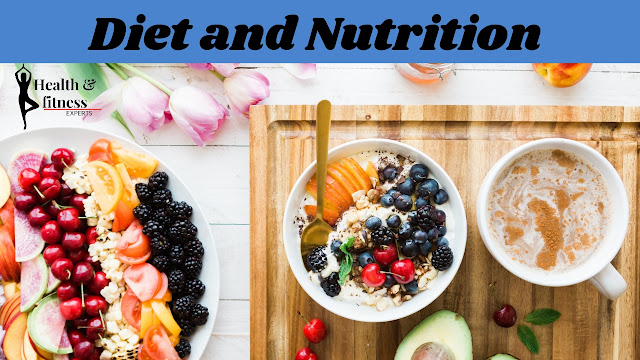 |
| Dental Hygiene |
Having a healthy set of teeth is crucial for your overall well-being. Not only does it help you chew your food properly, but it also enhances your smile and boosts your confidence. Good dental hygiene practices can go a long way in promoting strong, healthy teeth. In this article, we will explore ten best practices for dental hygiene that can help you maintain healthy teeth.
Importance of Healthy Teeth
Healthy teeth are an essential part of overall good health. They help you eat and speak properly, and they play an important role in the way you look and feel. Poor dental hygiene can lead to a host of dental problems such as cavities, gum disease, and bad breath. It can also lead to more severe health issues such as heart disease, diabetes, and respiratory problems.
Overview of Best Practices for Dental Hygiene
There are several best practices for dental hygiene that you should follow to maintain healthy teeth. These include:
- Brushing techniques
- Flossing techniques
- Rinsing techniques
- Diet and nutrition
- Chewing gum and mints
- Avoiding bad habits
- Regular dental checkups
- Restoring and replacing teeth
- Oral health and overall wellness
Let us look at each of these practices in detail.
Brushing Techniques
Brushing your teeth is the cornerstone of dental hygiene. It helps remove plaque, bacteria, and food particles from your teeth and gums. Here are some guidelines to follow when brushing your teeth:
Choosing the Right Toothbrush
Choose a toothbrush that has soft bristles.
A toothbrush with a small head can help you reach all areas of your mouth.
How Often to Brush
Brush your teeth at least twice a day, preferably after meals.
Brush for at least two to three minutes.
Proper Brushing Techniques
Hold your toothbrush at a slight angle against your teeth.
Use circular motions to brush the front, back, and top of your teeth.
Brush your tongue to remove bacteria.
Using Fluoride Toothpaste
Use toothpaste that contains fluoride, as it helps fight cavities.
Flossing Techniques
Flossing is an essential part of dental hygiene that helps remove plaque, bacteria, and food particles from between your teeth. Here is how to floss your teeth properly:
Benefits of Flossing
Flossing helps prevent gum disease and tooth decay.
It removes plaque and bacteria that brushing alone cannot reach.
Flossing Tools and Materials
Use dental floss or interdental brushes to clean between your teeth.
Proper Flossing Techniques
Gently slide the floss between your teeth.
Curve the floss around each tooth in a "C" shape.
Use a clean section of the floss for each tooth.
How Often to Floss
Floss at least once a day, preferably before bedtime.
Rinsing Techniques
Mouthwash can help kill bacteria and freshen your breath. Here is how to rinse your mouth properly:
Benefits of Mouthwash
Mouthwash helps fight bad breath and plaque.
It can help prevent gum disease and tooth decay.
Choosing the Right Mouthwash
Use an alcohol-free mouthwash to avoid drying out your mouth.
Choose a mouthwash that contains fluoride to help fight cavities.
How Often to Rinse
Rinse your mouth with mouthwash at least once a day.
Proper Rinsing Techniques
Swish the mouthwash around in your mouth for 30 seconds before spitting it out.
Diet and Nutrition
Your diet plays a significant role in the health of your teeth. Here is how your diet affects your teeth:
How Diet Affects Your Teeth
Sugary and acidic foods can erode your tooth enamel.
Calcium and phosphorous-rich foods can help strengthen your teeth.
Foods and Drinks to Avoid
Sugary and sticky foods such as candy and soda can lead to cavities.
Acidic foods and drinks such as citrus fruits and juices can erode your tooth enamel.
Foods and Drinks to Consume
Calcium and phosphorus-rich foods such as dairy products, nuts, and leafy greens can help strengthen your teeth.
Drinking plenty of water can help wash away food particles and bacteria.
Importance of Hydration
Drinking plenty of water helps keep your mouth hydrated and washes away bacteria.
Chewing Gum and Mints
Chewing gum and mints can help freshen your breath and promote saliva production. Here is how to choose the right gum and mints:
Benefits of Sugar-Free Gum
Chewing sugar-free gum helps prevent cavities.
It can also help freshen your breath and promote saliva production.
Choosing the Right Gum and Mints
Look for products that contain xylitol, as it helps fight cavities.
Avoid products that contain sugar, as it can harm your teeth.
How Often to Chew Gum
Chew sugar-free gum after meals or when needed to freshen your breath.
Avoiding Bad Habits
Certain habits can harm your teeth and contribute to dental problems. Here is how to avoid bad habits:
Habits that Damage Your Teeth
Teeth grinding and clenching can wear down your tooth enamel.
Smoking and excessive alcohol consumption can lead to gum disease and tooth decay.
Quitting Smoking
Quitting smoking can help improve your oral health and reduce your risk of dental problems.
Reducing Alcohol Consumption
Reducing your alcohol consumption can help prevent gum disease and tooth decay.
Avoiding Teeth Grinding and Clenching
Wearing a mouthguard or splint can help protect your teeth from grinding and clenching.
Regular Dental Checkups
Regular dental checkups are essential for maintaining healthy teeth. Here is why:
Importance of Dental Exams
Regular dental exams can help detect dental problems early.
It can help prevent serious health issues such as heart disease and diabetes.
How Often to Visit the Dentist
Visit your dentist at least twice a year, or as recommended by your dentist.
What to Expect During a Dental Exam
Your dentist will examine your teeth and gums for signs of decay or disease.
X-rays may be taken to detect hidden dental problems.
Importance of Dental X-Rays
Dental X-rays can help detect hidden dental problems such as cavities and bone loss.
Restoring and Replacing Teeth
Several dental procedures can help restore and replace damaged or missing teeth. Here is how:
Treating Cavities and Tooth Decay
Your dentist may remove decayed are
as and fill the cavity with a filling or crown.
Restoring Damaged Teeth
Procedures such as bonding, veneers, and crowns can help restore damaged teeth.
Replacing Missing Teeth
Dental implants, dentures, and bridges can help replace missing teeth.
Importance of Oral Surgery
Oral surgery may be necessary for severe dental problems or to prepare for dental implants.
Oral Health and Overall Wellness
Maintaining good oral health can help improve your overall well-being. Here is why:
How Oral Health Affects Overall Wellness
Poor oral health can lead to severe health issues such as heart disease and diabetes.
It can also affect your mental health and well-being.
Link Between Oral Health and Heart Disease
Studies have shown that there is a link between gum disease and heart disease.
Conclusion
Maintaining healthy teeth is crucial for your overall well-being. By following these ten best practices for dental hygiene, you can reduce your risks of dental problems and maintain a bright, healthy smile.
Also read : Dental implant Pros &Cons
FAQs
Ques: What is dental hygiene?
Ans: Dental hygiene refers to the practice of maintaining good oral health by brushing, flossing, and rinsing your mouth, eating a healthy diet, and visiting your dentist regularly.
Ques: What is the best toothbrush to use?
Ans: Choose a toothbrush that has soft bristles and a small head.
Ques: Why do I need to floss?
Ans: Flossing helps remove plaque, bacteria, and food particles from between your teeth, which brushing alone cannot achieve.
Ques: Is mouthwash necessary for dental hygiene?
Ans: Mouthwash is not necessary, but it can help fight bad breath and prevent dental problems.
Ques: What foods are good for my teeth?
Ans: Calcium and phosphorus-rich foods such as dairy products, nuts, and leafy greens can help strengthen your teeth.
Ques: Why do I need regular dental checkups?
Ans: Regular dental checkups can help detect dental problems early, which can lead to prompt treatment and prevention of severe issues.
Ques: What can I do to replace missing teeth?
Ans: Dental implants, dentures, and bridges can help replace missing teeth.
Ques: How does oral health affect overall wellness?
Ans: Poor oral health can lead to severe health issues such as heart disease, diabetes, and respiratory problems, which can have a significant impact on your quality of life.
Ques: What is the link between oral health and heart disease?
Ans: Studies have shown that there is a link between gum disease and heart disease, indicating the importance of maintaining good oral health for your overall well-being.



















0 Comments